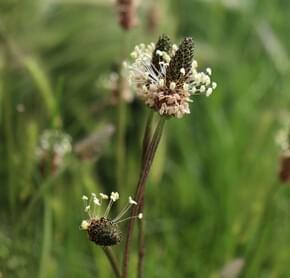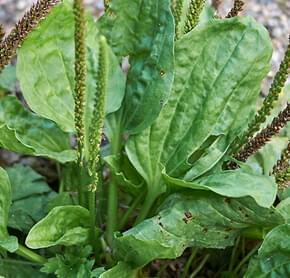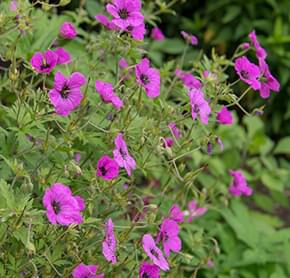Pet rabbits love natural, foraged treats and toys, but it can be difficult to know what’s safe when walking in the wild. We spoke with Eileen Walthall, author of Wild Nutrition, to get some tips.
Rabbits are growing in popularity as a pet, with more than 3% of all UK adults now owning bunnies, according to Petplan’s 2019 Pet Census.
They might be cute and small, but rabbits eat. A lot. They need plenty of fresh hay to munch on and a steady diet of fresh leafy greens and herbs, plus a small amount of rabbit pellets for nutrition. Then there’s the question of keeping them entertained. Bored bunnies can be destructive bunnies, so it’s a good idea to have plenty of toys and exercise options available to them.
All of that can add up quite quickly, especially if you’re purchasing toys and treats from shops. One way you can keep these costs down is by making like a wild bunny and heading out to do a bit of foraging.
How to forage
In the wild, rabbits thrive on the same plants, herbs and wood that you’ll find if you head out for a countryside or forest ramble.
As Eileen Walthall, author of Wild Nutrition: Nutritious and medicinal wild plants for pet rabbits, explains, there are plenty of useful things to be found in the wild. The trick is knowing what’s bunny-safe.
‘Keeping it basic for the beginner, I’d be looking for plantain, both ribwort and broadleaf, which is a great source of long-stem fibre,’ she says. ‘This is good for the gut and easy to recognise.’
 Ribwort
Ribwort Broadleaf
BroadleafShe also recommends dandelion, most of the hawkweeds, herb robert (geranium robertianum) and other wild geraniums and cranesbills. Clovers and trefoils are good but should be used in moderation as they can make rabbits gassy.
 Cranesbill
Cranesbill Dandelion
Dandelion‘There are many hundreds of edible and beneficial wild plants for bunnies, but these are a good starting point,’ says Eileen, recommending the Collins Complete Book of Wildflowers for plant identification.
In terms of trees, opt for twigs from the easy-to-recognise willow, hawthorn and hazel.
Generally, these plants are widespread in the UK but there will be some regional exceptions. For example, wild fennel is generally found south of the Midlands.
Not everything is bunny safe!
Eileen recommends you avoid all plants from the carrot family if you’re a beginner, as some of these are toxic and they all look similar to the untrained eye. There are other plants that are OK at certain points of their lifecycle but not at others.
‘Join a rabbit foraging group on Facebook to swap tips and learn about what’s best,’ says Eileen. ‘It’s a great community spirit.’
She also warns that rabbits must be vaccinated if you intend to forage for them.
Use wild plants to make DIY toys
While you’re out in the wild foraging for your bunny, pick up some extra willow to make a toy for them. Balls and rings made from willow twigs are particular favourites. Here’s how you can make a ring, with thanks to The Rabbit House:
- Find a willow tree. You’ll know it by its long, slender leaves and bendy branches. Cut some twigs from the branches.
- Remove any leaves still present by running your hand down the branch from the tip.
- Cut along any forks in the branches to create a single strand.
- Tie a knot in the strand. It will be super bendy as it’s willow. Don’t worry about getting the perfect length, but make sure you leave about half the length free of the knot to help with the weaving.
- Weave those spare ends into the circle of willow to produce a very skinny ring.
- Next, keep weaving pieces of willow around to make the ring thicker, and stop when you feel it’s a good size for your rabbit.
You’ll soon become a natural at foraging and can experiment with different ways to get your bunny interacting with the treats you bring home.
Has your bunny got a favourite homemade foraged toy? Share it with us on @PetplanUK on Facebook!
We work in partnership with the UK's animal charities and have seen first-hand the devastating impact Covid-19 is having on their income and the vital funds needed to support the animals in their care. For over 30 years we have been providing 4 weeks free insurance for rehomed pets and giving 10% of rescue pet premiums back to animal charities. In June, to help support animal charities through the Covid-19 crisis we paid over £700,000 in funds that our partners would have received from us in the next 6 months now, in one lump sum, to help them get through the pandemic.